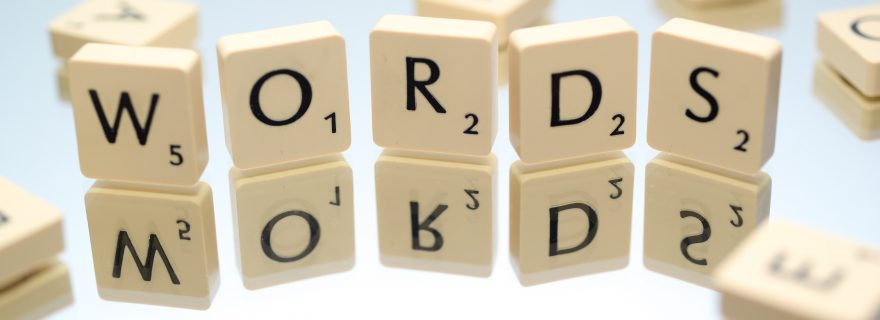What is in a word?
Words. We use them to communicate, express and relate to each other. It might seem self- evident, but how often do we take a moment to assess the words we use, their origin and meaning? Not the meaning found in the dictionary, but their histories of use and the worldviews they represent.
The year 2020 has seen the undeniable public demand for more inclusive institutions and a more inclusive society at large. It seemed that more and more people were either critically turning inwards, actively demanding recognition and respect on the streets or looking for ways to be an active ally. But for some, the feeling of powerlessness might still feel overwhelming, ‘’How can I contribute to a more inclusive society you may ask?’’. My suggestion is: Start with words.
Words. We use them to communicate, express and relate to each other. It might seem self- evident, but how often do we take a moment to assess the words we use, their origin and meaning? Not the meaning found in the dictionary, but their histories of use and the worldviews they represent.
Personally, I first learned about the social weight of certain words and expressions during a Bachelor internship. Before that, all I really knew on the subject were my own feelings and perceptions of things. Not that I wasn’t interested in the subject, the opposite was true. Being born in Colombia to Colombian parents, my appearance was difficult to hide and I was not numb to the fact that I would often be made aware of the fact that I was ’a bit different’ when I moved to the Netherlands as a small girl. I sometimes would notice myself feeling misunderstood or excluded when certain words would be used in conversations relating to me.
One such word was the Dutch word ‘allochtoon’ (foreigner), which is defined as being a person of whom at least one parent is born, or lives, abroad. The counterpart of this word is ‘autochtoon’, meaning that the person in question lives in their ‘native’ country or that of their recent ancestors. It was, however, telling that the word allochtoon was often not used in a neutral way, but marked many headlines and articles with negative connotations. When I would then be made aware by anyone that I too was an allochtoon, it made me wonder what that meant. Why was it that people felt the need to discern me from my white Dutch friends, even when I regarded the same country as them as my home. I found it hard to understand, but what I did know was that every time someone would refer to me as an allochtoon, it would remind me of the fact that, no matter if all my life my passport says ‘’Dutch’’, I would never really be seen as such, I was seen as different.
Another such excluding word in Dutch is ‘’mindervaliden’’ (disabled), one which has never applied to me but has to people in my direct surroundings. Mindervaliden is a term which became common in the 70s and refers to people with disabilities. However, the first part of the word implies that the person in question is in a specific way quite literally ‘less’ than anyone else, even though one is simply differently abled in a particular circumstance. Words like these can unconsciously contribute to a collective negative image that reduces affected persons to simply their disabilities and places them in a subordinate position. It is thus important to be aware of what words such as ‘’allochtoon’’ or "mindervalide" can actually communicate.
Everyone, at some point or another, might reproduce such language that makes a person or group feel excluded, intentionally or unintentionally. Not only was I not the only one who could at times feel excluded and denied by specific words, but I myself increasingly found words in my vocabulary that reproduced these patterns of exclusion, without me ever meaning any harm. As said by Simone Zeefuik: ‘’practices of exclusion are not always overt or conscious, they are sometimes embedded in the structure of our everyday language’’. Realizing this might feel confusing or uncomfortable, especially if you have always used a certain word without ever realizing the effect it might have on someone. But on the flipside, it may be good to know that you also have the power to make another person feel included and welcome, simply by using slightly different words.
Such conversations about the impact of words, however, are by no means easy to have. Yet, one piece of advice in particular helped me when engaging in these sometimes uncomfortable conversations: It’s not about being wrong, or looking wrong. In fact, that will probably happen every time you engage in such a conversation. It is about learning and making sure that when we say ‘’we’’, no one is left out. Having these conversations and asking questions is then the best thing one can do in order to understand what certain words mean and what patterns of exclusion they may reproduce. In this sense, language might be the most important tool for working towards a society in which everyone feels welcome and respected.
Words Matter
In 2018, the Research Center for Material Culture published a list of words accompanied with explanations and alternatives to serve as a guidance for exhibition makers, curators, marketers and educators. However, this publication may also be valuable for anyone who would like to know more about why certain words are considered to be sensitive or contested, and why.



0 Comments